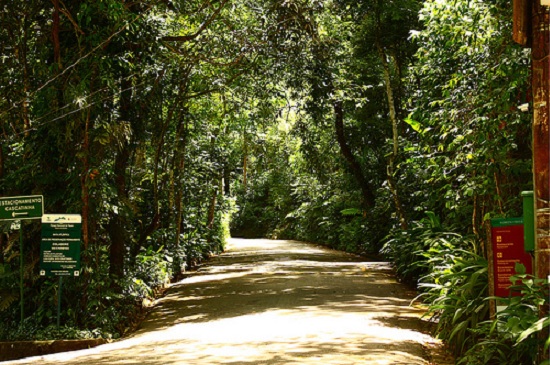
Rio de Janeiro is home to the largest urban forests in the world: the Tijuca Forest and the forest in Pedra Branca State Park. These lush rainforest ecosystems are home to several threatened plant and animal species, such as collared anteaters, brown capuchins, and channel-billed toucans. It makes sense that the United Nations would want to bring their annual Conference on Sustainable Development to such an environmentally rich area. But when I looked at this year’s conference schedule, I was surprised to see that forests were largely missing from the discussion. Why leave forests out of the conference agenda, when right outside the meeting doors, forests play a huge role in Brazil’s sustainable development?
This year’s conference, the Rio+20 Earth Summit, is already underway and continues through Friday. Organizers of the summit have identified seven key issues to discuss: oceans, water, food, energy, cities, jobs and disasters. Forests don’t appear much in the conference program other than a mention in the food issue description. That’s become an issue for forest-focused groups that advocate for the critical role that forests play in all sectors of sustainable development: economic growth, environmental health, agriculture, natural resources, and so on.

Forest research groups weren’t going to sit back and wait until the meeting was over to make changes. These groups want to ensure that forests become part of the international discussion about sustainability. The International Union of Forest Research Organisations (IUFRO) criticized the International Council for Science (ICSU) — which helped draft the Rio+20 processes — for its minimal inclusion of forest issues. IUFRO also put together a statement about why forests need to be a priority at Rio +20. Michael Kleine, IUFRO’s deputy executive director, pointed out that only three references to forests were made in the entire ICSU document — not nearly enough to cover the full spectrum of resources and services that forests provide. Another group, the Center for International Forestry Research (CIFOR), held a Rio+20 counterpart conference yesterday that explored the role of forests in research, policy and a green economy. CIFOR hopes the conference, entitled Forests: The 8th Roundtable at Rio+20, will make a statement about the importance of forest issues and bring them into the international sustainable development discussion.
The UN’s Food and Agriculture Organization (FAO) stated that 350 million of the world’s poorest, a sixth of which are indigenous people, depend on forest ecosystems for their livelihoods and daily survival. Clearly, forests are an essential part of our sustainable future and it’s time world leaders include them in the discussion. As I follow Rio+20 over the next few days, I hope to see a lot of buzz about forests.